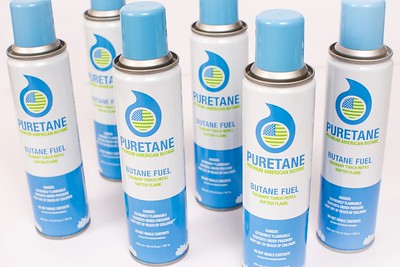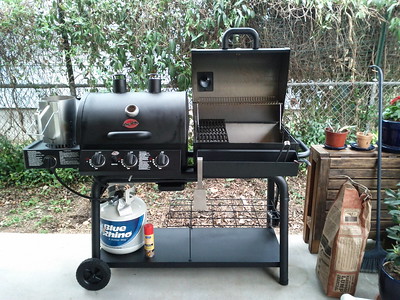
Butane can be stored for a long time if it is kept in the proper conditions. When stored in a well-sealed, high-quality container or canister, butane can last for ten years without significant degradation in quality. However, there are some factors to consider when storing butane to ensure its longevity and safety:
- Container: The butane should be stored in an approved, high-quality container or canister designed specifically for butane storage. This will help prevent leaks and ensure the container can withstand pressure changes over time.
- Temperature: Store butane in a cool, dry place, away from direct sunlight or heat sources. Exposure to high temperatures can increase the pressure inside the container, which may lead to leaks or, in extreme cases, rupture of the container. Ideally, butane should be stored at temperatures between 32°F (0°C) and 70°F (21°C).
- Ventilation: While it’s important to store butane in a cool and dry place, it should also be kept in a well-ventilated area to avoid the buildup of butane vapors in case of any minor leaks. This helps reduce the risk of fire or explosion.
- Inspection: Periodically inspect the storage container for signs of damage, rust, or leaks. If the container shows any signs of wear or damage, it should be replaced immediately.
- Away from ignition sources: Keep butane containers away from potential ignition sources, such as open flames, sparks, or other flammable materials. This minimizes the risk of accidental ignition.
By following these storage guidelines, you can ensure that your butane remains viable and safe for an extended period. While there is no definitive expiration date for butane, it is a good practice to use the oldest containers first and replace them regularly to ensure optimal performance when used in devices or appliances.
Ideal Temperature to Store Butane
The ideal temperature range for storing butane is crucial for maintaining its safety, quality, and effectiveness as a fuel. To store butane properly, it should be kept in a cool, dry, and well-ventilated place. The ideal temperature range for storing butane is between 32°F (0°C) and 70°F (21°C).
Storing butane within this temperature range helps prevent excessive pressure buildup inside the container, which may lead to leaks or, in extreme cases, rupture of the container. It also minimizes the risk of accidental ignition or combustion, as high temperatures can cause the butane to expand and become more volatile. Remember to store butane away from direct sunlight, heat sources, and potential ignition sources for optimal safety.
Does Butane Gas Have an Expiry Date?
The ideal temperature range for storing butane is an essential consideration to ensure the safety, quality, and longevity of the fuel. Butane, a volatile organic compound, is commonly used as a fuel source for lighters, portable stoves, and other appliances. As a highly flammable gas, it is crucial to store butane properly to prevent accidents and maintain its effectiveness.
To achieve this, butane should be stored in a cool, dry, and well-ventilated area. The ideal temperature range for storing butane is between 32°F (0°C) and 70°F (21°C). Maintaining this temperature range helps avoid several potential issues:
- Pressure buildup: Storing butane within the recommended temperature range helps prevent excessive pressure buildup inside the storage container. Exposure to high temperatures can cause the butane to expand, increasing the pressure and potentially leading to leaks or, in extreme cases, the rupture of the container.
- Flammability: Storing butane at lower temperatures reduces the risk of accidental ignition or combustion. As the temperature increases, butane becomes more volatile and prone to ignition, so it is essential to keep it away from heat sources and potential ignition sources.
- Fuel quality: Maintaining the ideal temperature range helps preserve the quality of the butane fuel. When stored within the recommended temperature range, butane can last for several years without significant degradation, ensuring that it remains effective when needed for various applications.
- Storage safety: Proper storage of butane includes not only temperature considerations but also the location and type of container. Butane should be stored in a high-quality, approved container designed specifically for butane storage. The storage area should be well-ventilated to prevent the buildup of butane vapors in case of minor leaks, reducing the risk of fire or explosion.
- Temperature fluctuations: It is important to avoid significant temperature fluctuations when storing butane, as these changes can impact the pressure inside the container and increase the risk of leaks or damage. Select a storage location where the temperature remains relatively stable to maximize safety and fuel quality.
The ideal temperature range for storing butane is between 32°F (0°C) and 70°F (21°C). By maintaining this temperature range, you can ensure the safety and quality of the fuel, preventing accidents and maximizing the effectiveness of butane for various applications. Additionally, proper storage includes using appropriate containers and ensuring adequate ventilation, further enhancing the safety and longevity of your butane fuel.
Does Butane Gas Have an Expiry Date?
Butane gas itself does not have a specific expiry date. However, its storage conditions and the quality of the container or canister it is stored in can impact its longevity and performance over time.
Under ideal storage conditions, butane can last for several years without significant degradation in quality. To ensure the longevity of butane, it is essential to store it properly. This includes:
- Using a high-quality, approved container or canister designed specifically for butane storage to prevent leaks and withstand pressure changes over time.
- Storing the butane in a cool, dry, and well-ventilated area, with temperatures ideally between 32°F (0°C) and 70°F (21°C).
- Keeping butane away from direct sunlight, heat sources, and potential ignition sources to reduce the risk of accidents.
- Periodically inspecting the storage container for signs of wear, damage, rust, or leaks and replacing it if necessary.
Although butane gas does not have a definitive expiration date, it is a good practice to use the oldest containers first and replace them regularly to ensure optimal performance when used in devices or appliances. By following proper storage guidelines, you can maintain the quality and safety of your butane gas for an extended period.
Is It Safe to Store Butane Indoors?
It is generally not recommended to store large quantities of butane indoors due to its highly flammable nature and the risk of leaks. However, if you need to store small amounts of butane (such as a few small canisters for lighters or portable stoves) indoors, you can do so safely by following proper storage guidelines:
- Approved container or canister: Ensure that the butane is stored in a high-quality, approved container or canister specifically designed for butane storage. This will help prevent leaks and ensure the container can withstand pressure changes over time.
- Cool, dry, and well-ventilated area: Store the butane in a cool, dry, and well-ventilated area, away from direct sunlight and heat sources. This helps to minimize the risk of accidental ignition and prevents excessive pressure buildup inside the container. Ideal storage temperatures range between 32°F (0°C) and 70°F (21°C).
- Away from ignition sources: Keep butane containers away from potential ignition sources, such as open flames, sparks, or other flammable materials, to minimize the risk of accidental ignition.
- Limited quantities: Store only small quantities of butane indoors. Large quantities should be stored in a dedicated, well-ventilated outdoor storage area designed for flammable gas storage.
- Regular inspection: Periodically inspect the storage containers for signs of damage, rust, or leaks. If you notice any signs of wear or damage, replace the container immediately.
- Follow local regulations: Adhere to any local regulations or guidelines regarding the storage of flammable gases like butane.
By following these safety precautions, you can minimize the risks associated with storing small amounts of butane indoors. However, for larger quantities or commercial purposes, it is best to store butane in a well-ventilated outdoor storage area or facility specifically designed for flammable gas storage.
In Conclusion
Butane can be stored for an extended period, potentially lasting several years without significant degradation in quality, as long as it is kept under proper storage conditions. To ensure the longevity and safety of butane, it is crucial to store it in a high-quality, approved container or canister, maintain a cool and dry environment with temperatures between 32°F (0°C) and 70°F (21°C), and keep it away from direct sunlight, heat sources, and potential ignition sources.
Additionally, regular inspection of storage containers for signs of wear or damage is essential to maintain safety. While butane itself does not have a specific expiration date, following these storage guidelines and using older containers first can help ensure optimal performance and safety when using butane in various applications.

Mike is an experienced propane technician with over 15 years of professional experience in the field. He has dedicated his career to helping customers with their propane needs, from installation to maintenance and repair. Together with Jeremy, he co-founded this website to provide useful information and guidance to customers seeking reliable propane services.



